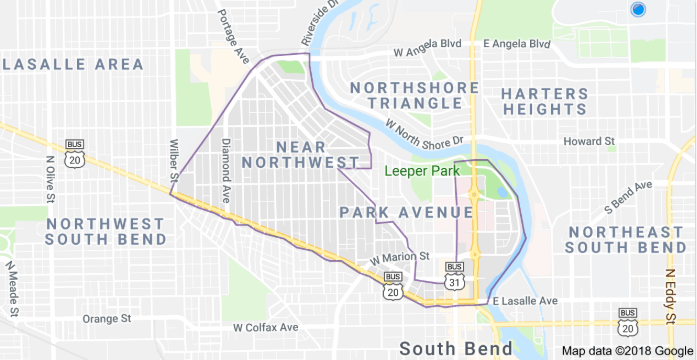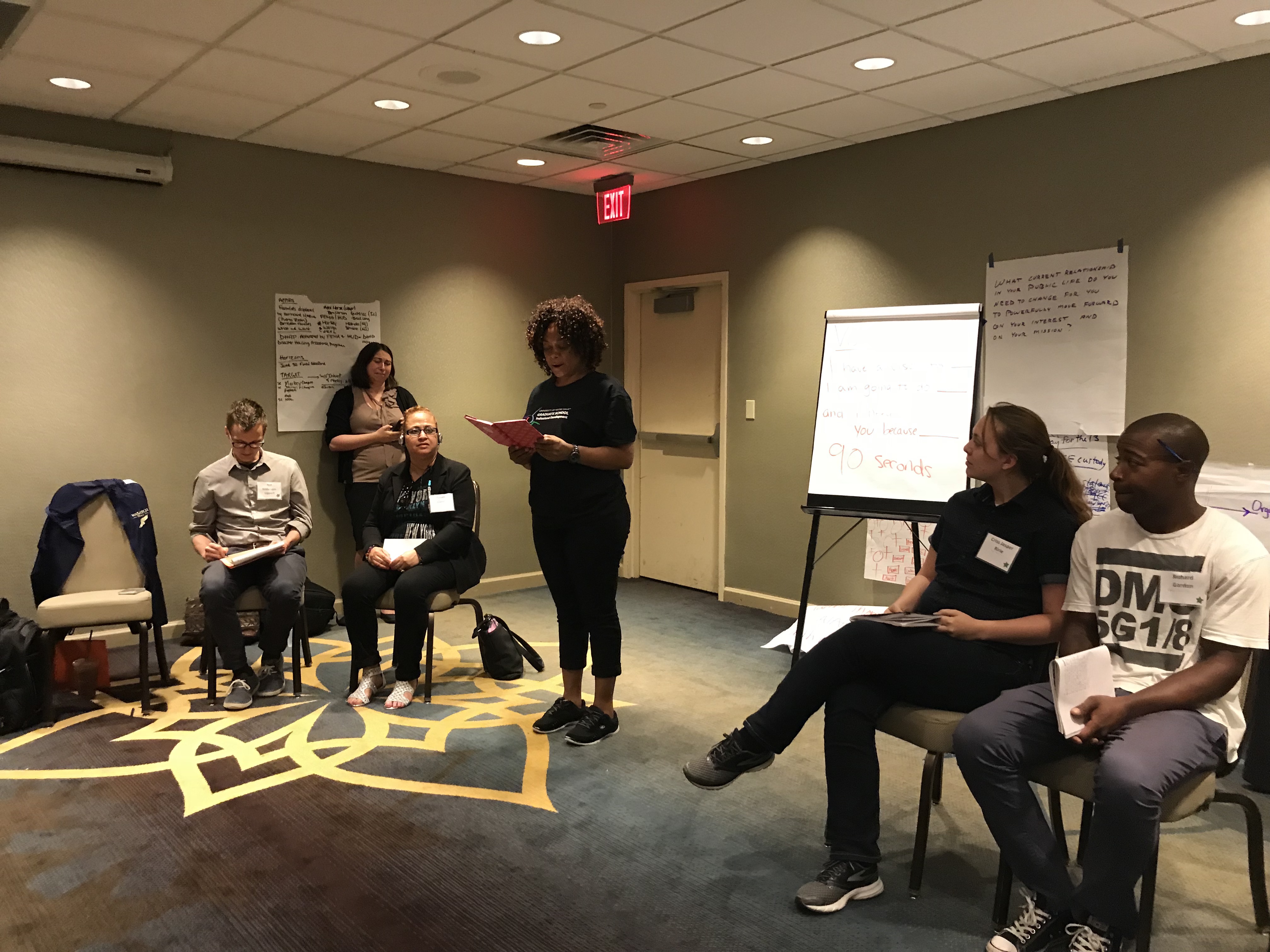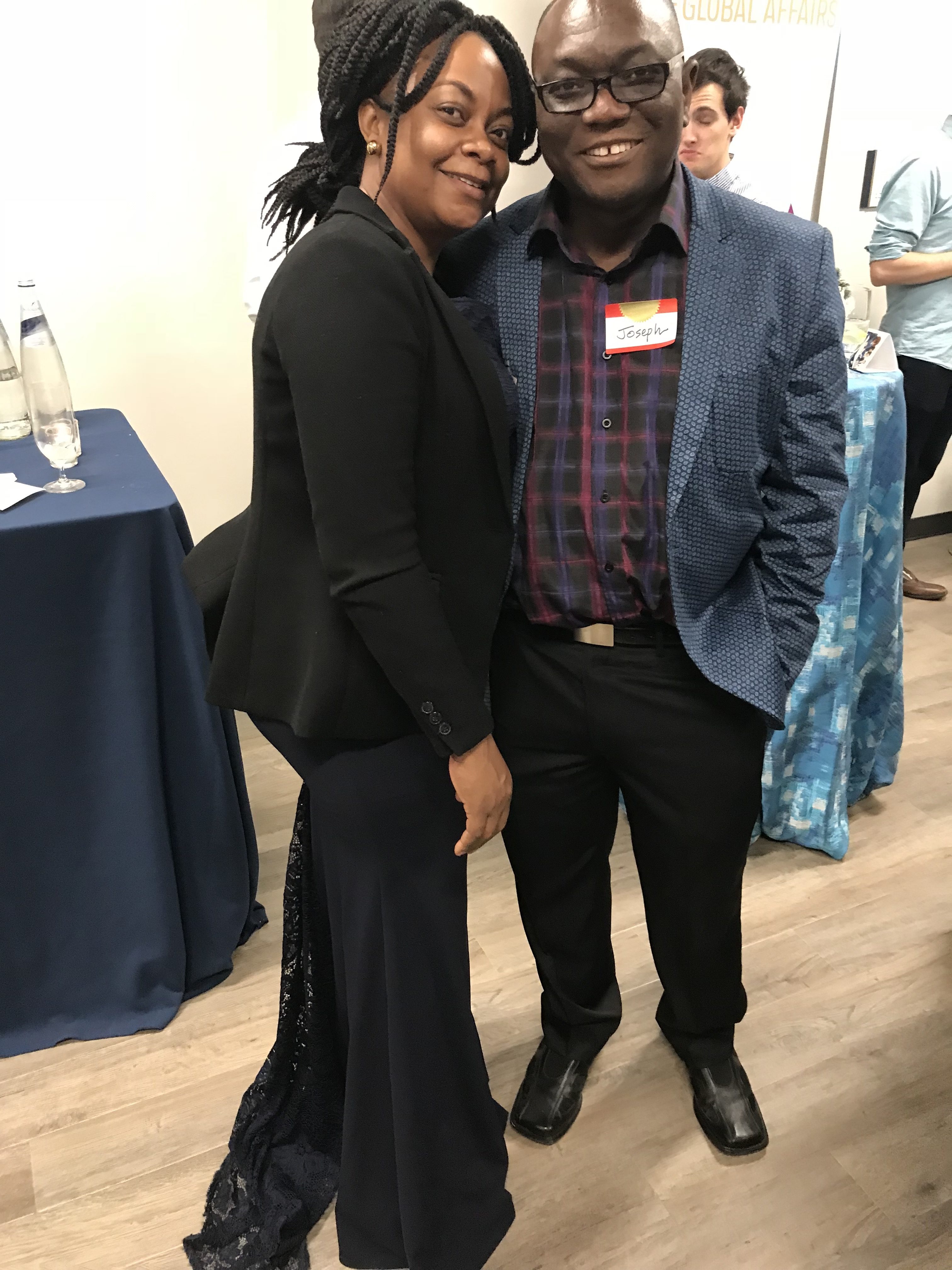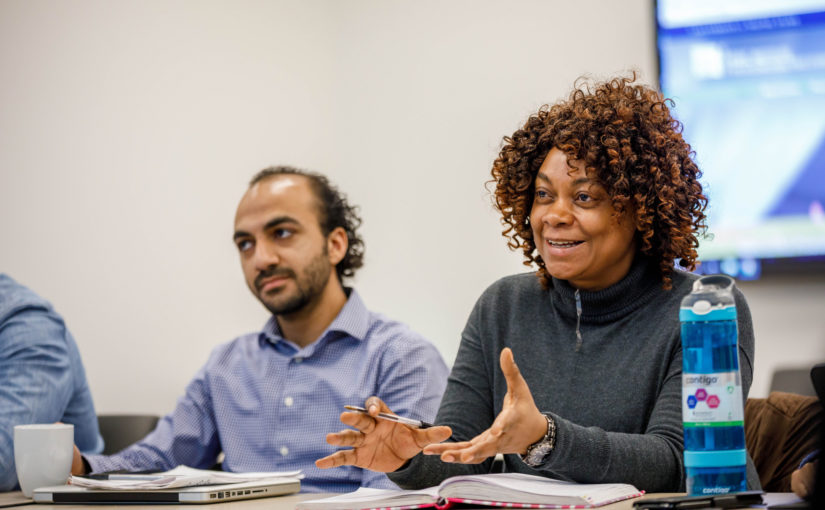Studying at the Keough School of Global Affairs has given me an avenue to connect theory and practice. As a graduate student in the International Peace Studies concentration and now in the second year of my two-year Master of Global Affairs program, I have been able to acquire applicable knowledge and insight from both class and field work. These experiences have not only increased my academic and professional knowledge, skills, and competence, but have broadened my horizons through sharing and learning with classmates from 22 countries and opportunities to hear from notable global leaders. I have had the opportunity to network, learn, and seek answers to questions about threats to global peace in conversation with world-renowned leaders and peacebuilders.
As another measure to link theory and practice, I am currently serving as an intern at Near Northwest Neighborhood, Inc. (NNN) in South Bend, Indiana. During this internship, I have been able to relate the theoretical lessons from my first year of classes to the realities in my surroundings.

Practically, my NNN field work involves getting to know my community through one-on-one interactions and door-to-door visits. Census tracts are geographical boundaries made by states to easily identify units of houses. Within these tracts in the NNN, we have blocks which encompasses groups of 100 houses as a “block.” As I have engaged in door-to-door visits with a teammate in Tract 6 and Tract 7 of our community, I have learned a lot about our neighborhood and the challenges that individuals are facing. Some of these challenges include:
i) poor management of homes by landlords
ii) the lead contamination in our neighborhood
iii) drug abuse and drug-related crimes
These issues have led to health challenges (especially for children and women), insecurity, and mistrust and suspicion among neighbors.
NNN has decided to focus on an agenda that can help to reverse these trends. The organization’s approach includes working on building a web of relationships, researching how to detect lead contamination, refurbishment of contaminated homes, and collaborating with other partners like Notre Dame and the Department of Health in South Bend.
My involvement in this work has challenged me to relate and engage with new cultures and value systems.
I have made it my priority and goal in the field to focus on how to contribute to addressing these neighborhood challenges. The actions and strategies I have adopted include: one-on-one meetings, understanding the motivations and self-interest of individuals that we can transform into mutual interests to move us to action, forming teams, moving from seeing problems to understanding issues, and engaging key decision-makers. I also capitalized on my previous experience working at various levels with organizations in Sierra Leone on behalf of women who had been severely marginalized and abused.

In this new role with NNN, my key achievements so far include:
- Having been able to build acquaintances with many people, I can now continue to build trust with them. Over time, this will elicit a more honest and open way to share their stories, understand their shared values and interest in social justice, and develop a cohesive vision for where we are going as a neighborhood.
- I have met with at least 50 people in the neighborhood and heard the things that interest them. Now we are working on issues regarding problematic homeowners and landlords.
- In the same vein, I have been engaging with the local code inspector to work with us and other good neighbors to see how we can best deal with these challenges. To this effect, I am hosting the first meeting between neighbors and the inspector to discuss these issues and forge a way forward.
In addition to community organizing, I am assigned to the Center for the Homeless this semester until mid-December. My role is to work with 10 women on how to solve their conflicts nonviolently. On the first Wednesday in September, we first met and started with brief introductions of ourselves, followed by a game. During the game, each person had to pick out a number of cards. Depending on how many cards were picked, each woman would tell us the same number of facts about herself. We had a wonderful time with one another, setting ground rules and asking everyone to think about what they expect from the classes this semester. At the end of the one-hour introduction class, we all had experienced a wonderful time.
I often reflect on these life-changing encounters as I retire to my bed at night and I feel so fulfilled, because I can see that I was able to touch the hearts of people, and particularly women, in a totally new cultural environment for me.
All of this is happening because of my time at Notre Dame, and I value the school’s contribution in my life.


